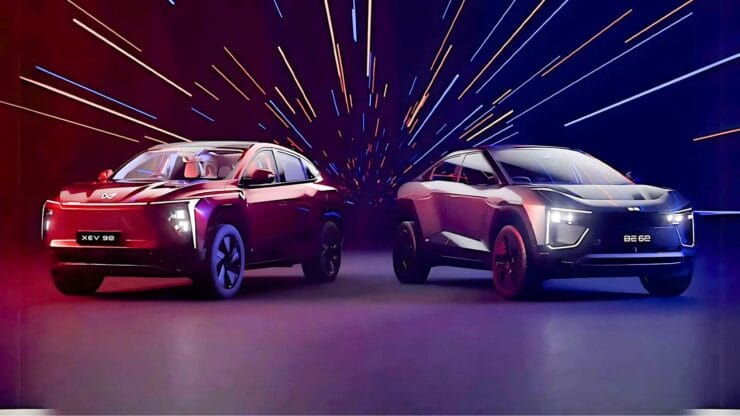Foxconn, a name most recognized for producing the iPhone, is now setting its sights on the ever-expanding electric vehicle (EV) market. Known for its manufacturing prowess in electronics, Foxconn’s foray into the automotive sector marks an exciting chapter in the rapidly evolving EV industry. But what does this mean for the future of global EV production? Let’s take a closer look at the move and what it could mean for the industry.
A New Chapter for Foxconn
Foxconn, officially known as Hon Hai Precision Industry Co., is a Taiwanese company with a well-established reputation as a major player in the global electronics manufacturing industry. Over the years, the company has become synonymous with producing devices for tech giants, including Apple. However, Foxconn is no longer just an electronics assembler; it is now making significant strides in the automotive sector, particularly with electric vehicles.

At the Consumer Electronics Show (CES) 2025, Foxconn unveiled its strategic plans to enter the competitive world of electric vehicles. This move comes at a time when the global automotive industry is transitioning toward cleaner, more sustainable transportation options. With consumer demand for electric cars surging, Foxconn sees a massive opportunity to use its existing expertise in manufacturing and technology to produce electric vehicles and parts on a larger scale.
The Growing Electric Vehicle Market
Before we going into Foxconn’s role in this transformation, let’s take a moment to understand the size and scope of the EV market. The global EV market has been on an upward trajectory for years, with sales expected to hit $800 billion by 2027. This growth is fueled by consumer interest in reducing their carbon footprint and government policies that push for cleaner air and a greener future.

The EV market is highly competitive, with a range of automakers—from startups to industry giants—rushing to carve out their piece of the pie. Companies like Tesla, Volkswagen, General Motors, and Toyota are already leading the charge. But as the demand for EVs continues to rise, new players like Foxconn bring fresh ideas and solutions that could help accelerate production and bring more affordable EVs to the market.
Foxconn’s Unique Approach to EV Production
So, what makes Foxconn’s entry into the EV space so intriguing? For starters, the company isn’t just looking to build its own brand of electric vehicles (at least not yet). Instead, Foxconn has adopted a strategy that focuses on providing a complete, customizable electric vehicle platform for other automakers. Known as the MIH platform, this offering allows car manufacturers to build their own EVs on top of a shared, flexible framework provided by Foxconn.
The MIH platform is modular, meaning that car manufacturers can tailor it to their specific needs and vehicle designs. This significantly reduces the time and cost involved in developing electric vehicles from scratch. It also means that even smaller companies with fewer resources can enter the EV market without needing to invest in creating an entire manufacturing process on their own.
This “platform as a service” model is a departure from the traditional automotive manufacturing process, where companies like Ford or GM build vehicles from the ground up. By offering a ready-made EV platform, Foxconn is providing automakers a shortcut to mass production, enabling them to bring electric vehicles to market much faster and more cost-effectively.
Foxconn’s Partnerships with Automakers
Foxconn’s push into the EV world is not happening in a vacuum. In fact, the company has already formed key partnerships with several well-known automotive brands. For instance, Foxconn has teamed up with major automakers like Nissan, Honda, and Renault. These collaborations position Foxconn as a key supplier of EV components, as well as a potential partner for manufacturing electric vehicles.
The partnerships reflect a growing trend in the automotive industry where traditional car manufacturers are increasingly relying on external suppliers for parts and platforms. By joining forces with Foxconn, automakers gain access to the company’s advanced manufacturing capabilities, as well as its wealth of knowledge in electronics and software. This could be particularly useful as vehicles become more tech-heavy, incorporating features like self-driving technology, battery management systems, and advanced infotainment systems.
What Does This Mean for Global EV Production?
The implications of Foxconn’s entry into the electric vehicle market are far-reaching. For one, it means that the production of electric vehicles could become more efficient and cost-effective, leading to a surge in the number of EVs on the road. As the company provides a scalable platform for automakers to build upon, the barriers to entry for new EV manufacturers will be significantly reduced. This could encourage innovation and competition, ultimately benefiting consumers with more options and lower prices.
Additionally, Foxconn’s presence in the market may spark further collaboration between tech companies and automakers. As the lines between technology and transportation continue to blur, the automotive sector may become increasingly reliant on tech firms for everything from electric drivetrains to battery technology and beyond. Foxconn, with its vast experience in electronics, could emerge as a central player in this new ecosystem, shaping the future of both EV production and transportation at large.
Challenges Ahead
Despite its potential, Foxconn’s foray into the EV space is not without challenges. The electric vehicle industry is highly competitive, and the company will face stiff competition from both established automakers and startups. Additionally, scaling up production and navigating regulatory hurdles in different markets could prove challenging. Furthermore, automakers may be hesitant to fully depend on an external supplier like Foxconn for such a critical part of their production process.
However, Foxconn’s extensive experience in manufacturing and its ability to forge partnerships across industries could help mitigate these challenges. As the company continues to refine its offerings and strengthen its partnerships, it will likely become an increasingly influential player in the global EV landscape.
Conclusion
As the world shifts towards cleaner energy and sustainable transportation, Foxconn’s move into the EV market is a sign of things to come. With its scalable platforms and strategic partnerships, the company is positioned to play a key role in the future of electric vehicles. While challenges remain, Foxconn’s entry into the electric vehicle race is sure to accelerate innovation and production in the industry.
In the coming years, we can expect to see more and more companies, both large and small, leveraging Foxconn’s platforms to bring electric vehicles to market faster and more affordably. This, in turn, could lead to a world where electric vehicles are the norm, and sustainable transportation is within reach for more people than ever before.
Let’s wrap it up for now! We’ve explored Foxconn’s exciting new move into the electric vehicle market and what it could mean for the future of EV production. Stay tuned for more updates, and keep up with the industry’s latest trends. Catch you in the next one!
Raja Yadav, the content writer at My Car Wisdom, brings a unique voice and style to our blog. With a knack for storytelling and a keen eye for detail, Raja ensures that every piece of content is informative, engaging, and easy to understand. His focus is on delivering high-quality articles that cater to both novice car owners and seasoned automotive enthusiasts.




